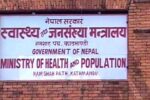CANADA: A controversial academic study has reignited a debate over whether red and processed meat cause cancer and heart disease, with researchers recommending people keep eating the same amount of meat.
Led by Dalhousie University and McMaster University in Canada and published in the Annals of Internal Medicine, the findings have infuriated health professionals around the world who warn the report could pose a risk to public health.
The most controversial finding — that the risks of eating red meat are minimal, and that the evidence is too weak to prove the risks are real — go against the advice of health bodies around the world, including the World Health Organisation (WHO).
“We’re not saying there is no risk. We’re saying there is only low-certainty evidence of a very small reduction of cancer and other adverse health consequences of reducing red meat consumption,” one of the researchers, Associate Professor Bradley Johnston, told the BBC.
“The right choice for the majority of people, but not everyone, is to continue their meat consumption.”
WHO’s International Agency for Research on Cancer (IARC) made global headlines in 2015 when it found processed meat was “carcinogenic to humans” and that eating red meat was “probably carcinogenic”.
The review’s findings were compiled by 14 researchers in seven countries over three years. Researchers involved were vetted for conflicts of interest, and the review did not have any external funding.
McMaster University said the team of researchers reviewed randomized controlled trials and observational studies looking at the impact of red meat and processed meat consumption on cardiometabolic and cancer outcomes.
“In one review of 12 trials with 54,000 people, the researchers did not find statistically significant or an important association between meat consumption and the risk of heart disease, diabetes or cancer,” the university reported.
(Agencies)









Comment